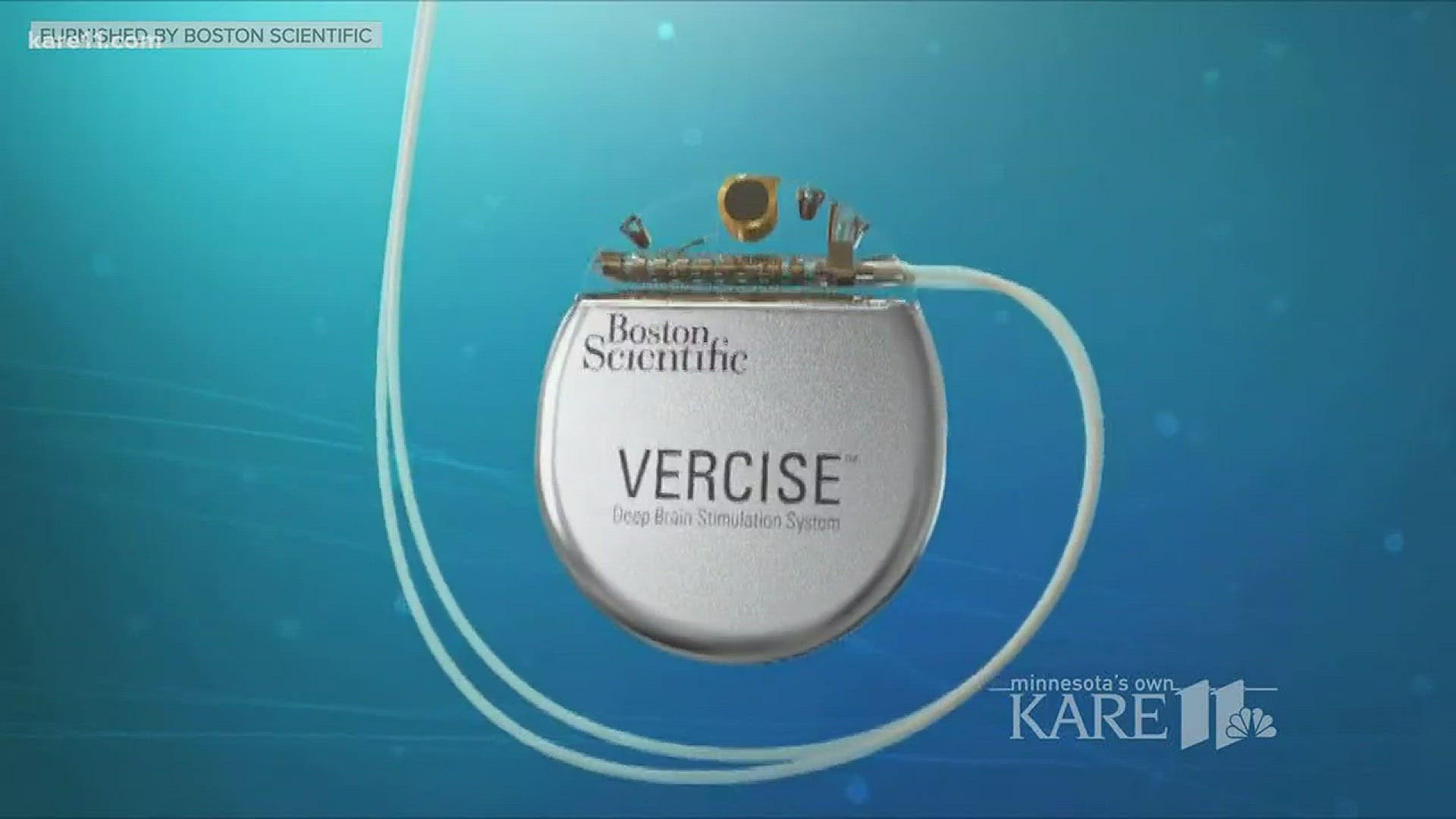MINNEAPOLIS - It's like a pacemaker for the brain, created to help people with Parkinson's.
"It's a huge deal. You can turn the clock back in these patients," said Dr. Jerry Vitek, a neurologist with University of Minnesota Health.
Dr. Vitek has been studying the brain at the U of M for years. This device, by Boston Scientific, called Vercise, is a new kind of deep-brain stimulation system, implanted in the chest, with a wire on the side.
"It comes under the skin, into the back of the neck, behind the ear and that connects to the lead that's then in the brain," said Dr. Vitek.
A tiny, 1.27-millimeter lead that's surgically inserted into the head.
"We do the surgery while the patient is awake, so when we turn it on we can actually see the tremors go away," said Dr. Michael Park, a neurosurgeon at the University of Minnesota Health.
Instant relief, and without pain because there are no pain sensors in the brain.
"What's really critical about this surgery, it's a lot like real estate -- location, location, location. If you're off by a millimeter," said Dr. Vitek, "you may not get the results you're looking for."
Deep brain stimulation itself has been getting positive results for years. But, last month, Dr. Vitek and Dr. Park both oversaw, at the U of M, the very first patient to receive treatment from the new FDA-approved Vercise.
So, what makes this Boston Scientific device different from the previous one?
"I would compare it to something like how our cell phones and smartphones have evolved, right? It just has more features that means you can do more things with it," said Dr. Park.
Essentially, it's more personalized. It has an independent contact control, which controls the amount of current and where it goes into the patient's brain, hitting the right spots and avoiding negative side effects.
Will everyone with Parkinson's get this DBS-device or is this just for some patients?
"Well, that's a great question because, my personal belief is, that I think the vast majority of patients would do well with this," said Dr. Vitek.
Parkinson's Disease is a degenerative condition that affects more than one million people in the United States and 10 million worldwide, according to the Parkinson's Foundation.

